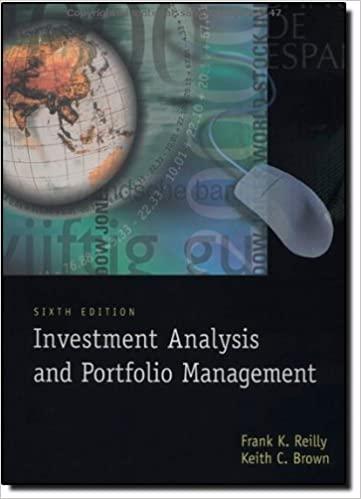Dividend constraints: The Howe Company's stockholders' equity account is as follows: Common stock (400,000 shares at $5 par) $2,000,000 Paid-in capital in excess of par
Dividend constraints: The Howe Company's stockholders' equity account is as follows:
| Common stock (400,000 shares at $5 par) | $2,000,000 |
| Paid-in capital in excess of par | 1,000,000 |
| Retained earnings | 2,000,000 |
| Total stockholders' equity | $5,000,000 |
The earnings available for common stockholders from this period's operations are $100,000, which have been included as part of the $2.0 million retained earnings.
a. What is the maximum dividend per share that the firm can pay? (Assume that legal capital includes all paid-in capital.)
b. If the firm has $170,000 in cash, what is the largest per-share dividend it can pay without borrowing?
c. Indicate the accounts and changes, if any, that will result if the firm pays the dividends indicated in parts a and b.
d. Indicate the effects of an $80,000 cash dividend on stockholders' equity.
Step by Step Solution
There are 3 Steps involved in it
Step: 1

See step-by-step solutions with expert insights and AI powered tools for academic success
Step: 2

Step: 3

Ace Your Homework with AI
Get the answers you need in no time with our AI-driven, step-by-step assistance
Get Started


